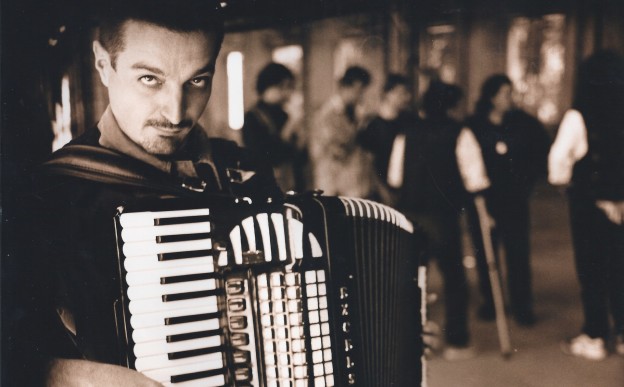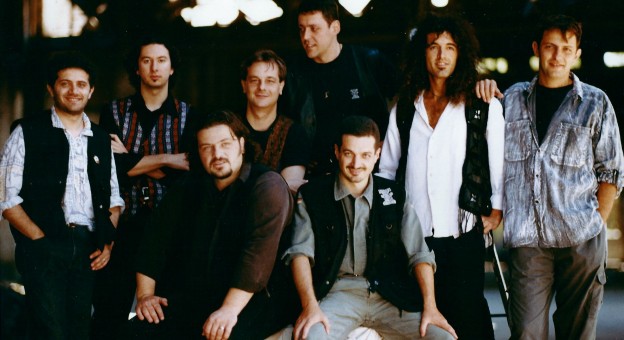Even after we all left Modena City Ramblers, Cisco, Giovanni and I have remained friends. We shared things that everyone shares with their friends: dinners, jokes, a few intense discussions.
There is one discussion that keeps resurfacing despite the passing years. What is left of the years we spent, militating in the same band, the 90s of the last century? The antimafia movement. The slaughter of Justices Falcone and Borsellino. The Clean Hands investigation. The first center-left government in Italy’s republican history. Europe, slowly but surely integrating and expanding eastwards. For us (and many others) the discovery of our own ancestral culture, its peasant roots and eternal aspiration to social justice. All these came to pass, and were important. For us, they still are. And yet, they feel so far away in time and way of thinking.
Take me. I left my career in music, and now I work on open government and social innovation. I move between the hacker scene and inter-governmental institutions, between science and radical social practices. No one, in my current crowd, ever speaks of the stories that have made our history (“ours” in the sense of Italians at the threshold of age fifty, and “ours” also in the sense of Cisco’s, Giovanni’s, and mine). I now find these stories difficult to tell. The world has changed in twenty years, so much that they are all but unintelligible. Hell, we were there, and we are not even sure how they ended. Did we win? Did we lose? What is left?
And yet, tell the tale we must. This I have learned in my fifty years of life, twenty-five of them around folk music. When we were young men, Cisco, Giovanni and I hungered for stories. We would harass our older relatives to better understand what went on during World War II and the Nazi occupation of Italy. We would grill our slightly older friends to relive the rebellion of the 1970s through their eyes.
Now we are the older relatives and friends. We have the stories. We have daughters and sons, nieces and nephews, younger friends who want to hear them. Folk’s Law says we have no excuses: we must tell them.
Tell them how? This is easy. Our common language is music. So, Gio has once again embraced his guitar. I am blowing the dust off my accordion. Cisco has taken some time off his solo career. We are making a new album, the first one together in this millennium, and presumably the last.
Giovanni has written a volley of songs. They are beautiful. They are the songs you can write only at this age. He captured the mix of disenchantment and pride that I feel among people of my age, and from my native country. The disenchantment is for the many battles we have fought and lost; the pride is for finding each other still standing, despite everything, scarred but not surrendered. The album will be titled The dynosaurs, because that’s how we feel. Strange creatures from a distant past, who left mysterious footprints in the world in which we all live today. Two old friends from the times of Modena City Ramblers, Kaba Cavazzuti and Massimo Giuntini, help us in their capacity of artistic producers.
Obviously, The dinosaurs will be a project with very little commercial appeal. An acoustic album made by fifty year old men, who do not perform in talent shows? Seriously, who the hell cares. We are not even bothering to go talk to record labels. We will produce it through a crowdfunding campaign, and some of our own money. Folk music saved our lives twenty-five years ago. It’s time we give back.
More information is here (in Italian).

